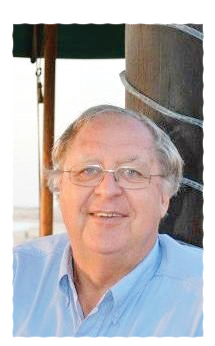
Manage absenteeism to boost customer service and productivity

Mike Hill, Deputy Director of the Harold Pupkewitz Graduate School of Business (HP-GSB), draws on over 40 years of international business experience including 25 years in Namibia working for leading multi-national and local organisations at Managing Director and Executive Director level. He is passionate about developing organisations and people and is in high demand as a facilitator for Board and Senior Management development programmes and public speaking assignments. He holds an M.Sc (Econ) from the London School of Economics, is a Chartered Fellow of the CIPD (UK), and a Master HR Practitioner and Mentor of the SABPP. Mike now heads the Executive Education Department of the HP-GSB (tel 207-2941) which offers both public and in-house facilitation and advisory services to the private, state owned and public sectors.
Managing absenteeism is a core line management responsibility. It is not a simple “one size fits all” disciplinary issue – absence is a complex issue calling for skilled management analysis and evaluation backed up by organisation specific action at management , supervisory and employee levels. It is also important to ensure that the organisation’s policy framework sends out a consistent message – for example, if your policy requires that leave is approved in advance (to provide management the opportunity to plan how work is to be done) it is inconsistent to allow an absentee to just take leave post-facto since this immediately undermines management’s responsibility and authority for planning and decision making.
Each morning every employee, when he or she wakes up, decides whether or not to go to work. There is now a considerable body of research that points to management being able to either positively or negatively influence this daily decision. Even when the employee does decide to go to work, just being physically at work does not mean that the whole employee is at work and applying himself to his job. This “unseen” absenteeism is generally a much greater challenge for management.
The unique dynamics of each organisation, its management, supervision and employees call for unique responses to manage absenteeism and improve organisational effectiveness and service. There are a number of essential tools that managers can use, but how these are used depends on the situation in the organisation. Probably the most important factor is the manager’s understanding of the present situation and where he or she would like to see change – the metrics (measurements) that management collect and analyse are a good starting point for deciding on necessary action.
On 04 July 2012 the Harold Pupkewitz Graduate School of Business will present a practical Executive Education Short Course for senior line and human resources managers to assist them to develop their own systemic programmes for managing absenteeism in their organisations. Other Executive Education short courses bringing best-practice to Namibian managers will be run throughout the year and in-house advice and assistance is also available to Namibian organisations.










































